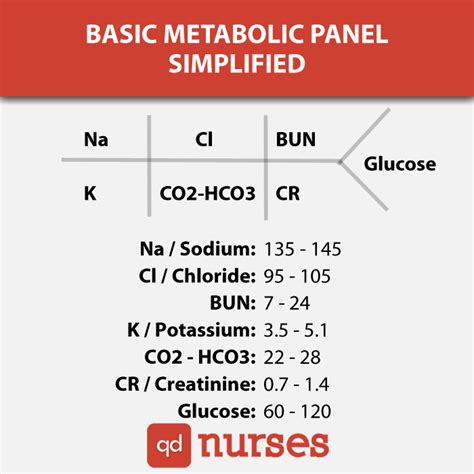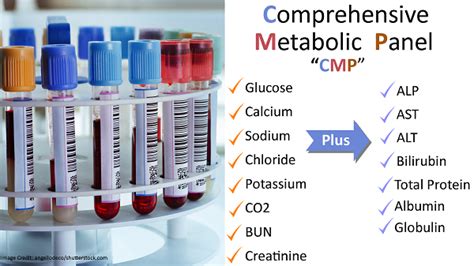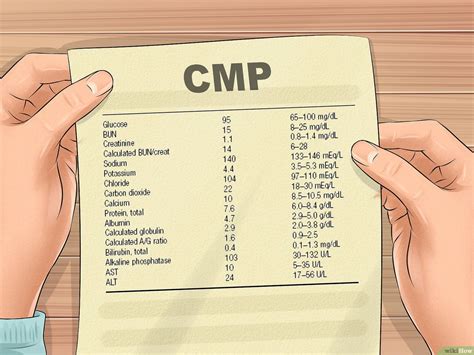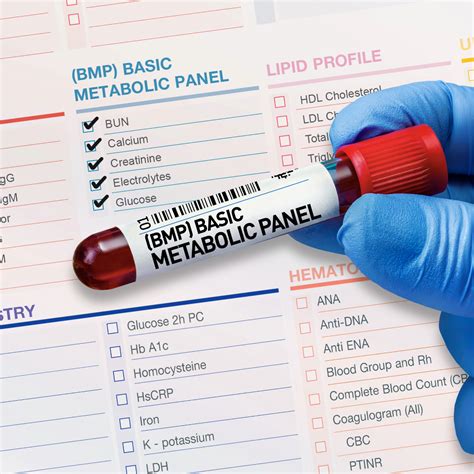Intro
Discover 7 key metabolic panel facts, including blood tests, glucose levels, and lipid profiles, to understand your bodys metabolic health and manage conditions like diabetes and hypertension.
The importance of understanding one's metabolic health cannot be overstated, as it plays a crucial role in determining overall well-being. A comprehensive metabolic panel (CMP) is a crucial diagnostic tool that helps healthcare professionals assess various aspects of a patient's metabolism, including blood sugar levels, electrolyte balance, and liver and kidney function. By analyzing the results of a CMP, individuals can gain valuable insights into their metabolic health and make informed decisions about their lifestyle and treatment options. In this article, we will delve into the world of metabolic panels, exploring their components, benefits, and significance in maintaining optimal health.
A metabolic panel is a series of tests that measure various substances in the blood, providing a snapshot of an individual's metabolic function. The results of these tests can help identify potential health issues, such as diabetes, kidney disease, and liver damage, allowing for early intervention and treatment. Moreover, a CMP can also help monitor the effectiveness of treatments and track changes in metabolic function over time. With the increasing prevalence of metabolic disorders, it is essential to understand the role of metabolic panels in maintaining optimal health and preventing chronic diseases.
The significance of metabolic panels extends beyond diagnostic purposes, as they can also serve as a preventive tool. By analyzing the results of a CMP, individuals can identify areas for improvement and make lifestyle changes to reduce their risk of developing metabolic disorders. For instance, a CMP can help identify insulin resistance, a precursor to type 2 diabetes, allowing individuals to make dietary and exercise changes to improve their insulin sensitivity. Furthermore, a CMP can also help monitor the health of individuals with pre-existing metabolic conditions, enabling them to adjust their treatment plans and prevent complications.
Introduction to Metabolic Panels

Components of a Metabolic Panel
The components of a metabolic panel can be broadly categorized into several groups, including: * Blood sugar tests: These tests measure the levels of glucose in the blood, providing insights into an individual's blood sugar control and insulin function. * Electrolyte tests: These tests measure the levels of essential electrolytes, such as sodium, potassium, and chloride, in the blood, helping to identify potential imbalances and disorders. * Liver function tests: These tests measure the levels of liver enzymes and proteins in the blood, providing insights into liver health and function. * Kidney function tests: These tests measure the levels of waste products, such as creatinine and urea, in the blood, helping to assess kidney function and identify potential kidney damage.Benefits of Metabolic Panels

Interpreting Metabolic Panel Results
Interpreting the results of a metabolic panel requires a comprehensive understanding of the various tests and their reference ranges. The results of a CMP are typically reported in a table or graph, with each test result compared to a reference range. Abnormal results may indicate a potential health issue, such as diabetes or kidney disease, and may require further testing or treatment. It is essential to consult with a healthcare professional to interpret the results of a metabolic panel and develop an effective treatment plan.Preparing for a Metabolic Panel

Tips for Preparing for a Metabolic Panel
Some tips for preparing for a metabolic panel include: * Fasting for the recommended period: Fasting is essential to ensure accurate results, as food and drink can affect the levels of various substances in the blood. * Avoiding certain foods and drinks: Foods and drinks high in sugar and caffeine can affect the results of the tests, so it is essential to avoid them before the test. * Informing your healthcare professional about medications and supplements: Certain medications and supplements can impact the results of the tests, so it is essential to inform your healthcare professional about any medications or supplements you are taking.Common Metabolic Panel Tests

Understanding Metabolic Panel Results
Understanding the results of a metabolic panel requires a comprehensive understanding of the various tests and their reference ranges. The results of a CMP are typically reported in a table or graph, with each test result compared to a reference range. Abnormal results may indicate a potential health issue, such as diabetes or kidney disease, and may require further testing or treatment. It is essential to consult with a healthcare professional to interpret the results of a metabolic panel and develop an effective treatment plan.Metabolic Panel and Disease Prevention

Importance of Metabolic Panels in Disease Prevention
The importance of metabolic panels in disease prevention cannot be overstated. By identifying potential health issues early on, individuals can make lifestyle changes to reduce their risk of developing chronic diseases. Some of the key importance of metabolic panels in disease prevention include: * Early detection of metabolic disorders: Metabolic panels can help identify potential health issues, such as diabetes and kidney disease, allowing for early intervention and treatment. * Monitoring of treatment effectiveness: Metabolic panels can help track changes in metabolic function over time, enabling healthcare professionals to adjust treatment plans and prevent complications. * Identification of nutritional deficiencies: Metabolic panels can help identify nutritional deficiencies, such as vitamin and mineral deficiencies, allowing individuals to make informed decisions about their diet and lifestyle.What is a metabolic panel?
+A metabolic panel is a series of tests that measure various substances in the blood, providing a snapshot of an individual's metabolic function.
What are the benefits of a metabolic panel?
+The benefits of a metabolic panel include early detection of metabolic disorders, monitoring of treatment effectiveness, and identification of nutritional deficiencies.
How do I prepare for a metabolic panel?
+To prepare for a metabolic panel, individuals should fast for the recommended period, avoid consuming certain foods and drinks, and inform their healthcare professional about any medications or supplements they are taking.
As we conclude our discussion on metabolic panels, it is essential to remember that these tests are a valuable tool in maintaining optimal health and preventing chronic diseases. By understanding the components, benefits, and significance of metabolic panels, individuals can take proactive steps to improve their metabolic function and reduce their risk of developing metabolic disorders. We invite you to share your thoughts and experiences with metabolic panels in the comments section below and encourage you to consult with a healthcare professional to learn more about the importance of metabolic panels in maintaining optimal health.
